In a world where digital threats are growing more advanced, business owners must take proactive steps to secure their data and systems. One of the most important actions a business can take is conducting regular security audits and implementing live video monitoring. These audits don’t just protect against hackers but also help maintain a company’s reputation, financial stability, and compliance with industry standards.
Security audits play a vital role in uncovering vulnerabilities, ensuring compliance, and protecting your business from financial loss. But beyond these immediate benefits, they also provide a framework for ongoing improvements in your cybersecurity posture.
Understanding Security Audits: The Basics
A security audit involves a comprehensive evaluation of a company’s digital infrastructure, including systems, processes, and policies. Auditors assess the current security measures in place to identify potential risks, gaps, or vulnerabilities. Through this evaluation, businesses can determine whether their security practices align with the best industry standards and are robust enough to counter evolving cyber threats.
The scope of a security audit covers several aspects of business operations. Auditors often examine system configurations, access controls, encryption methods, incident response strategies, and more. This broad review ensures that any weaknesses in the business’s defenses are uncovered before cybercriminals can exploit them.
Why Live Video Monitoring Matters in Security Audits
A strong security strategy must involve both digital and physical protections. Live video monitoring has become a critical tool for businesses seeking to protect their physical assets in real time. When integrated with security audits, live video monitoring enhances overall security by adding an additional layer of protection.
Combining live video monitoring with regular security audits ensures that both digital and physical security vulnerabilities are addressed, providing a comprehensive approach to business protection. Real-time monitoring not only deters potential breaches but also assists in identifying unusual activity, which can be flagged and addressed immediately.
Why Regular Security Audits Are Critical
1. Uncovering System Vulnerabilities
Cybercriminals constantly innovate new ways to infiltrate business systems. Regular security audits help identify weaknesses in your IT infrastructure before attackers can exploit them. These vulnerabilities could be outdated software, weak access controls, or unpatched system components.
Without consistent audits, businesses risk leaving these weaknesses exposed. Regular reviews help ensure your organization stays one step ahead of cyber threats by proactively addressing any issues before they turn into full-blown attacks.
2. Staying Compliant with Industry Regulations
Most industries require businesses to comply with specific regulations to protect sensitive customer and partner data. Whether you operate in healthcare, finance, or any other sector, regulations play a huge part in how you manage security.
Regular security audits help ensure compliance with these regulations. Failing to comply can result in legal consequences, including fines, lawsuits, or a tarnished reputation. Audits also showcase to your partners and customers that you take data protection seriously, fostering trust and credibility.
3. Improving and Updating Security Policies
Security policies need regular updating to remain effective. A security audit evaluates your current policies, determining if they align with both industry best practices and the latest cyber threats. For example, an audit might highlight that your password management policies are outdated or that your incident response plan is lacking.
By conducting security audits regularly, you can ensure that your policies evolve alongside new threats and technologies. This ongoing refinement of security policies ensures your organization remains resilient in the face of new challenges.
4. Reducing the Risk of Financial Loss
A single data breach can lead to significant financial loss, often spanning beyond immediate recovery costs. Companies face downtime, legal fees, and even long-term reputational damage, which can have lingering financial impacts. Regular security audits help mitigate these risks by identifying issues before they escalate into crises.
With a proactive approach, businesses can avoid the high costs associated with security breaches. Audits also provide insight into where to allocate resources most effectively, ensuring that security investments protect the organization in the long term.
5. Strengthening Employee Awareness
Employees represent one of the biggest vulnerabilities in any cybersecurity framework. Mistakes like falling for phishing scams or mishandling sensitive data can open the door for cybercriminals. Security audits often include assessments of employee practices and highlight areas where additional training is necessary.
Regular security audits provide an opportunity to strengthen employee awareness through enhanced training programs. Ensuring that employees understand the importance of best practices, such as secure password management and recognizing phishing attempts, creates a security-conscious culture.
6. Refining Incident Response Plans
Every business needs a solid incident response plan to manage potential breaches. A well-defined plan ensures the organization can detect, contain, and recover from incidents effectively. Security audits evaluate these plans, highlighting weaknesses and offering ways to improve.
Regularly refining incident response strategies based on audit findings ensures that, in the event of a security breach, the business can respond swiftly and efficiently, minimizing damage and downtime.
7. Maintaining System and Network Integrity
Over time, IT systems and network infrastructures become outdated, creating gaps in a company’s security defenses. Live video monitoring, paired with regular security audits, can help identify these vulnerabilities in both your digital and physical systems.
Audits help businesses stay current by identifying outdated software, missed patches, or vulnerabilities in network configurations. By maintaining system integrity through continuous updates and improvements, businesses protect themselves against the latest threats.
8. Enhancing Data Protection Strategies
Data is the most valuable asset for many businesses. Losing data to a cyberattack can cripple operations and lead to serious financial and reputational damage. Security audits assess data protection measures, such as encryption, access controls, and data backup practices.
By identifying areas for improvement in these strategies, businesses can ensure that sensitive information is safeguarded from unauthorized access and breaches. Live video monitoring adds another layer of security by ensuring that physical access to data centers and workspaces remains secure.
9. Benchmarking Against Industry Best Practices
Cybersecurity standards continue to evolve. Regular security audits provide an opportunity to compare your security posture against current industry best practices. By benchmarking your practices, you gain insights into areas where you may be falling short or excelling.
This benchmarking not only enhances your internal security but also helps your organization stay competitive within the industry. Staying on top of the latest trends ensures your business remains aligned with the highest security standards, fostering trust and reliability with clients.
Key Components of a Security Audit
Security audits generally follow a structured process to thoroughly assess business systems.
1. Risk Assessment The audit begins with a risk assessment to identify potential threats. This process evaluates the entire IT environment, from hardware and software to network configurations.
2. Security Controls Review A review of security controls follows. This assessment ensures firewalls, intrusion detection systems, and antivirus measures are functioning properly. Auditors make recommendations for enhancements where needed.
3. Policy Evaluation The audit also includes a review of company security policies. This evaluation ensures that access controls, data protection methods, and incident response strategies are up to date.
4. Penetration Testing Penetration testing, or ethical hacking, simulates real-world attacks on your systems. This testing highlights vulnerabilities that aren’t immediately visible and informs the necessary corrective actions.
5. Compliance Check Lastly, the audit checks for compliance with regulatory standards, ensuring the business is following required practices to avoid legal and financial penalties.
Secure Your Business with Live Patrol’s Live Video Monitoring
When it comes to safeguarding your property, people, and assets, traditional security measures are no longer enough. With Live Patrol’s advanced live video monitoring services, you can take control of your security system like never before. Our next-gen AI-powered technology provides real-time surveillance, allowing you to detect and respond to potential threats immediately, all while reducing costs and improving efficiency.
Whether you need protection for a construction site, commercial property, high-rise residential building, or any other facility, Live Patrol has you covered. With our customizable security solutions, you get more than just cameras—you get a team of highly trained professionals monitoring your premises around the clock, ensuring maximum security.
Don’t wait until it’s too late. Protect your business with the best in live video monitoring. Contact Live Patrol today to learn how we can customize a security solution for your needs and provide peace of mind with cutting-edge technology. Stay secure, stay proactive—reach out now!
Call 416-477-3350 or email us at info@livepatrol.com to get started.


